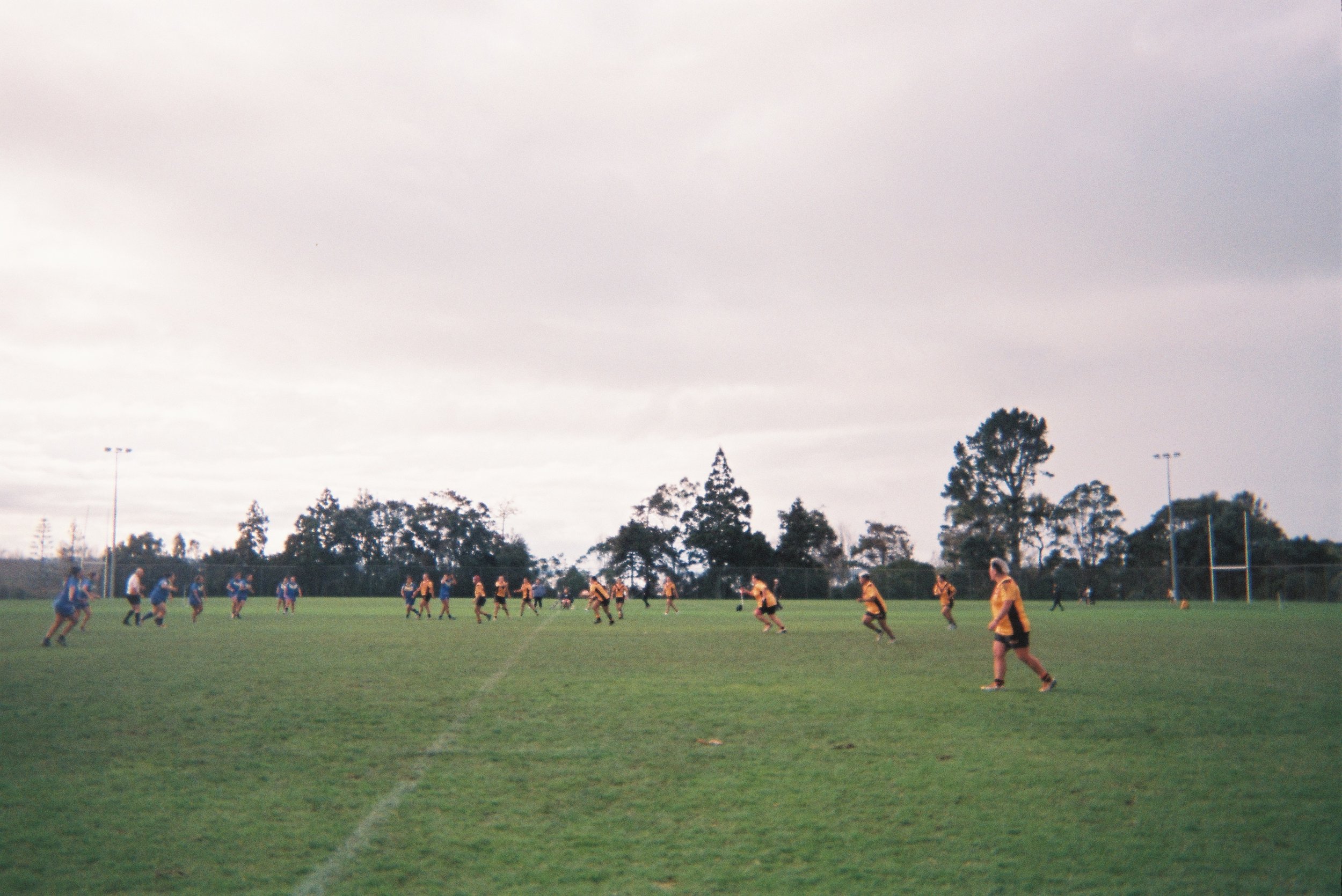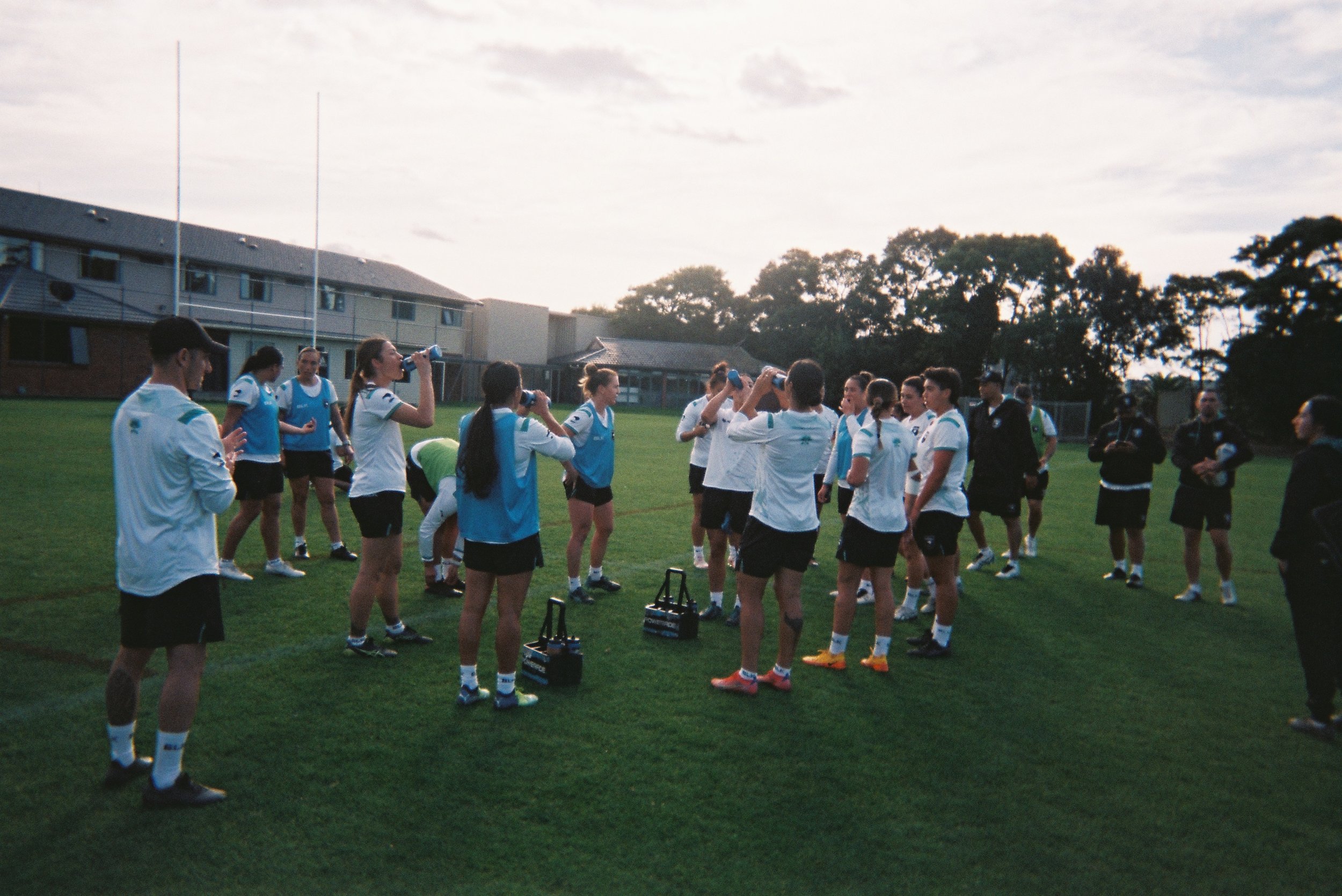The Courage To Continue
Krystal Rota, New Zealand
We teamed up with Rugby League World Cup 2021 for a special series. From Jamaica, Brazil and Lebanon, to England, New Zealand and the Cook Islands, our series documents the personal journeys of players to the Rugby League World Cup 2021 – across the Men’s, Women’s, and Wheelchair tournaments.
Krystal Rota is the captain of New Zealand Kiwi Ferns, and tells us about the hard choices that got her to the Rugby League World Cup.
Can you introduce yourself and tell us about your rugby journey?
My name is Krystal Rota, and I am the current captain of the New Zealand Kiwi Ferns. I currently represent the Manurewa Marlins rugby league team in Auckland, New Zealand. Previously I played in the NRLW competition in the inaugural year for the Warriors and in 2022 I relocated to Australia for an opportunity to play for the Newcastle Knights. I have also represented Ngati Umutahi in our annual Māori tournament.
I started playing rugby league for Manurewa Marlins at 17 years old - prior to that I played netball growing up. I started through an uncle who was coaching and encouraged me to give it a go. Since that day I have never looked back.
I have endured several injuries in my career but have used those as motivation to come back stronger. Since having children, one of whom has been medically dependent after having a kidney transplant, it has been a lot harder to commit to playing rugby league.
But I am so passionate about this sport that I have made huge sacrifices to continue with my career and chase my dreams – especially the amount of time I spend away from my children. I find it extremely challenging.
Playing at an elite level requires a lot of commitment and time, training several nights a week, playing at the weekends, being away for tournaments and campaigns. My most recent relocation to Australia to play for the Knights meant three months away from my family. It without a doubt one of the hugest and hardest sacrifices I have made.
Rugby League has become a part of my identity. It has brought me many tears through injury and defeat but then some of my biggest achievements have been because of this sport - such as the opportunity to captain my country, win several gold medals, and most importantly make many lifetime memories and friendships.
Playing for my country with the Kiwi Ferns is the pinnacle of this sport. Both this and representing my culture for the Māori Allstars means everything to me. It is an absolute honour and privilege to wear the Fern on my chest and to play for my tribe and people and something I will forever be grateful for.
What did you try to show with the photos? Was there any wider meaning with any of the photos?
I tried to show the different levels of rugby league here in New Zealand from grassroots and provincial level to NRWL and international competition. I was trying to portray the vast difference between the levels of rugby league and the different environments in which we train, prepare, and play.
I took photos of my Manurewa Marlins team playing in our local Premiership competition at grassroots level, my counties team at provincial level, our Newcastle Knights team, my Māori All-stars team during our campaign in Australia in February 2022, and the Kiwi Ferns team during our campaign where we had a Test match against Tonga.
Our Māori All-stars team is a bunch of super talented athletes. We all play against each other in NRLW and at international level (when we play Australia), but we get the opportunity to play alongside each other for this team due to our connection back to our Whakapapa - our cultural connection in being of Māori descent.
One photo shows our Manurewa Marlins team from my first game back after several months off due to an ankle injury I sustained in Australia. Manurewa Marlins was my first ever club. I appreciate this club and my teammates. The grassroots level is very special because it is where it all starts. Fast-forward a couple months and I won a gold medal alongside these ladies.
What role does rugby league play in your community and country?
Rugby league in my community is massive. Our Manurewa Marlins club is the biggest club in New Zealand. It plays a massive role in our community because it gives so many people something positive to participate in. My area has a high crime rate and troubled youth, so i feel that having rugby league is a good outlet for people - a place for them to feel connected and build relationships with teammates and their families, and in turn keep them out of trouble.
What are the opportunities for female players in your country?
There are more pathways today than when I started playing. Back then you could play with the boys up to around 14 years old, then the next option was straight to open women’s teams, but now they have youth age groups right the way through. Young female players have that option for club level but now also at representative level, so there are so many more opportunities in New Zealand now.
When I retire, I aspire to help continue growing the game and help young females chase their dreams in this space.
What do you expect to change after the RLWC for women's rugby league? What would you like to change?
I expect that due to the exposure and coverage more females will be interested to participate in women’s rugby league. I would like to see more consistent equality between the men and women in rugby league. The introduction of more NRLW teams in Australia will provide more opportunities for up-and-coming female rugby league players.
Do you have a message for the next generation of young female players?
“Success is not final. Failure is not fatal. It is the courage to continue that counts.”
This quote means a lot to me because no matter what I have achieved, there is always more out there. When I fail, that is not the end. Failure is ok. It helps build resilience, which is crucial not only in footy but in life. I return to working hard, change my goals, and chase those. Get back up and soldier on!










